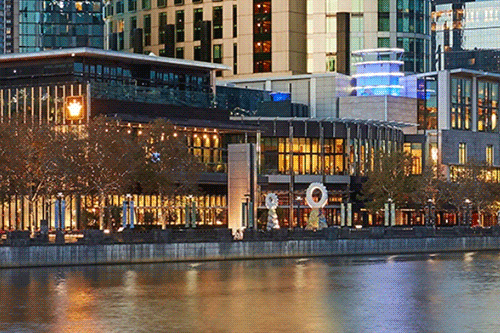Crown Melbourne launches multi-million dollar lawsuit over flammable cladding

Crown Melbourne has initiated legal proceedings against a consortium of architects, engineers, and consultants, seeking to recover substantial costs incurred during the replacement of flammable cladding on one of its Southbank luxury hotels. The casino and hotel giant filed a writ with the Supreme Court of Victoria last month, detailing its claims against five defendants.
The lawsuit comes after the City of Melbourne issued a building order, compelling Crown to undertake "expensive" rectification works to replace the non-compliant cladding. Crown is now pursuing legal action to recoup these costs from the parties they allege were responsible for the project's oversight.
Named in the writ are prominent firms including architecture firm Bates Smart, engineering consultants Aurecon and Aecom, fire engineer company Thomas Nicolas, and environment consultant Greencap. Crown alleges that Aecom acted as the facade engineer and building surveyor for the project.
A Crown Melbourne spokesperson, in a statement to the Herald Sun, confirmed the legal action, stating that the company filed the writ to "preserve its legal rights to recover costs" associated with the mandatory cladding replacement. The lawsuit signals a significant escalation in the ongoing issue of flammable cladding in Melbourne's high-rise buildings.
“Those proceedings have not been served against any parties,” they said.
The 4.5-star hotel, initially approved in 2007 and opened in 2010, faced scrutiny over the use of aluminium composite panel (ACP) cladding, later deemed non-compliant with Australian building standards.
The project, which included the hotel tower, a podium connecting it to existing Crown structures, and office space for Crown College and administration, was ultimately flagged by the City of Melbourne in 2021. A building order mandated the complete removal and replacement of the combustible ACP cladding.
Crown asserts that the cladding material, used during the hotel's original construction, posed a significant fire risk. The complex remediation project, finally completed by mid-2023, followed legal action initiated by Crown, who allege "loss and damage" due to breaches by the construction workforce involved in the hotel's initial build. The hotel located on the corner of Clarendon St and Whiteman St now meets all required building codes.
“At all material times if ACP cladding which did not comply with the requirements of the Building Code of Australia was installed on the project, there were risks that Crown … would be obliged to undertake expensive rectification works, suffer harm in the form of economic loss …(and) there would be an increased risk of fire spread in the buildings forming part of the project.
“It is appropriate for the scope of the (worker’s) liability to extend to any loss or damage suffered by Crown.”
Crown has revised its legal action, removing construction giant Lendlease as a defendant in the ongoing case. The adjustment follows the initial writ that included the builder. The amended court documents now place heightened scrutiny on safety engineering firm Thomas Nicolas.
This isn't the first instance of legal challenges for Thomas Nicolas. The company's involvement in the 2014 Docklands flammable cladding fire has been previously established.
Furthermore, in 2019, the Victorian Civil and Administrative Tribunal held Thomas Nicolas accountable for the majority of the nearly $6 million recladding costs for the Lacrosse apartment tower on Latrobe Street.
Notably, Thomas Nicolas also provided sign-off for Neo200, the Spencer Street apartment building that suffered a cladding-fueled fire in 2019.
Cladding Safety Victoria has voiced concerns regarding a "widespread and systemic" failure within the building industry. The agency's reports indicate that architects, fire engineers, and building surveyors frequently deviated from established building design regulations. This non-compliance resulted in the installation of combustible cladding on numerous residential structures throughout Victoria.
A comprehensive review by Cladding Safety Victoria, encompassing detailed building plans and permits from over 800 privately owned apartment buildings, revealed a significant trend.
The agency's findings, released last year, showed that combustible Aluminium Composite Panels (ACP) and extended polystyrene (EPS) materials were specified in 75 percent of the reviewed buildings.
Jonathan Jackson, 1st April 2025







